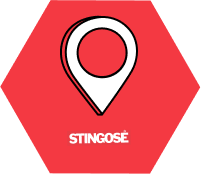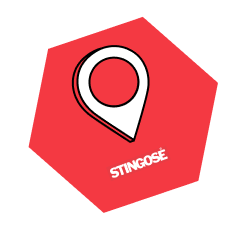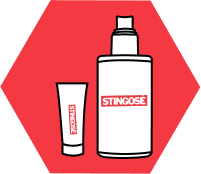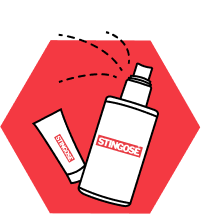Insect Bite: An insect bite causes a puncture wound in the skin. They bite in order to feed on their victim’s blood. Eg. ants, mosquitoes, sand flies. The type of insect that bites you can determine what type of reaction you will have. Most insect bites will only cause a minor allergic reaction including a bump, redness and swelling, itching at the site due to the saliva the insect injected when feeding
Insect Sting: An insect sting punctures the skin and leaves behind residue such as saliva, faeces or venom. Eg. Bees and wasps. Most insect stings will result in redness, a burning pain and swelling at the site of the sting.
Stingose Gel and Spray works to inactivate the venom from the insect bite or sting to provide relief.
Insect bites are a less common cause of anaphylaxis than insect stings. Severe allergic reactions (anaphylaxis) to insects are usually due to bees, wasps or the Australian Jack Jumper ant. Most insect bites and stings result in a localised itch and swelling that settles within a few days.
Allergies to venoms from stinging insects (bees, wasps and ants) are one of the most common causes of severe allergic reactions (anaphylaxis) in Australia. Symptoms include an all over rash, swelling of the tongue or throat, trouble breathing, abdominal pain, diarrhoea, vomiting or a drop in blood pressure (shock).
A bee, wasp or ant sting can cause pain and/or swelling. Some people may have an allergic reaction to the sting, which may cause a rash, vomiting, collapse or difficulty in breathing. Seek medical attention straight away if an allergic reaction occurs.
BITES:
- irritation
- inflammation & swelling
- a bump or blister around the bite mark
STINGS:
- an intense burning feeling
- redness around the sting site
- pain that generally eases after an hour or so
- swelling around the sting
To prevent bites and stings, it’s a good idea to use insect repellent and wear protective clothing when walking through the bush.
Wear protective gloves and clothing when gardening. Bites and stings can happen when you have bare feet so wear shoes when you are outside, even around your home.
Mosquitoes cause itchy bites but severe allergic reactions are rare. Sensitivity to mosquito bites varies with individuals. Most people have only a mild reaction, but others can have severe symptoms from the saliva of mosquitoes. Typical symptoms include swelling, redness, and irritation at the puncture site.
Insect bites can sometimes become infected. The pain of a fire ant bite (also known as a sting) can last up to an hour, after which time small blisters or pustules may appear. If the blisters get broken they can become infected. When the skin is irritated and itchy from an insect bite, scratching breaks the skin and allows infection in. Infection is also more common in fire ant stings as often they will bite multiple times. If you are concerned about the reaction you are having after an ant bite, seek medical assistance immediately.
Wasps are generally more aggressive than bees and are attracted to food and sugary drinks.
Unlike a bee which only stings once, a wasp can potentially sting repeatedly. The sting of a wasp may cause a burning like pain, raised lump, redness, local inflammation and may result in anaphylaxis.
- In an emergency, call triple zero (000)
- Poisons Information Centre Tel. 13 11 26 – seven days a week, 24 hours a day
- Emergency department of the nearest hospital
- Your doctor
- Your local pharmacist
- Allergy & Anaphylaxis Australia Tel. 1300 728 000
There is no specific recommendation on the use of Stingose in different age groups. Talk to your healthcare professional for more information. Always keep out of eyes and take normal First Aid precautions such as the use of water and ice on the affected area.
There is no specific recommendation on the use of Stingose in different age groups. It’s always best to talk to your pharmacist or doctor for advice. Always keep out of eyes and take normal First Aid precautions such as the use of water and ice on the affected area.





